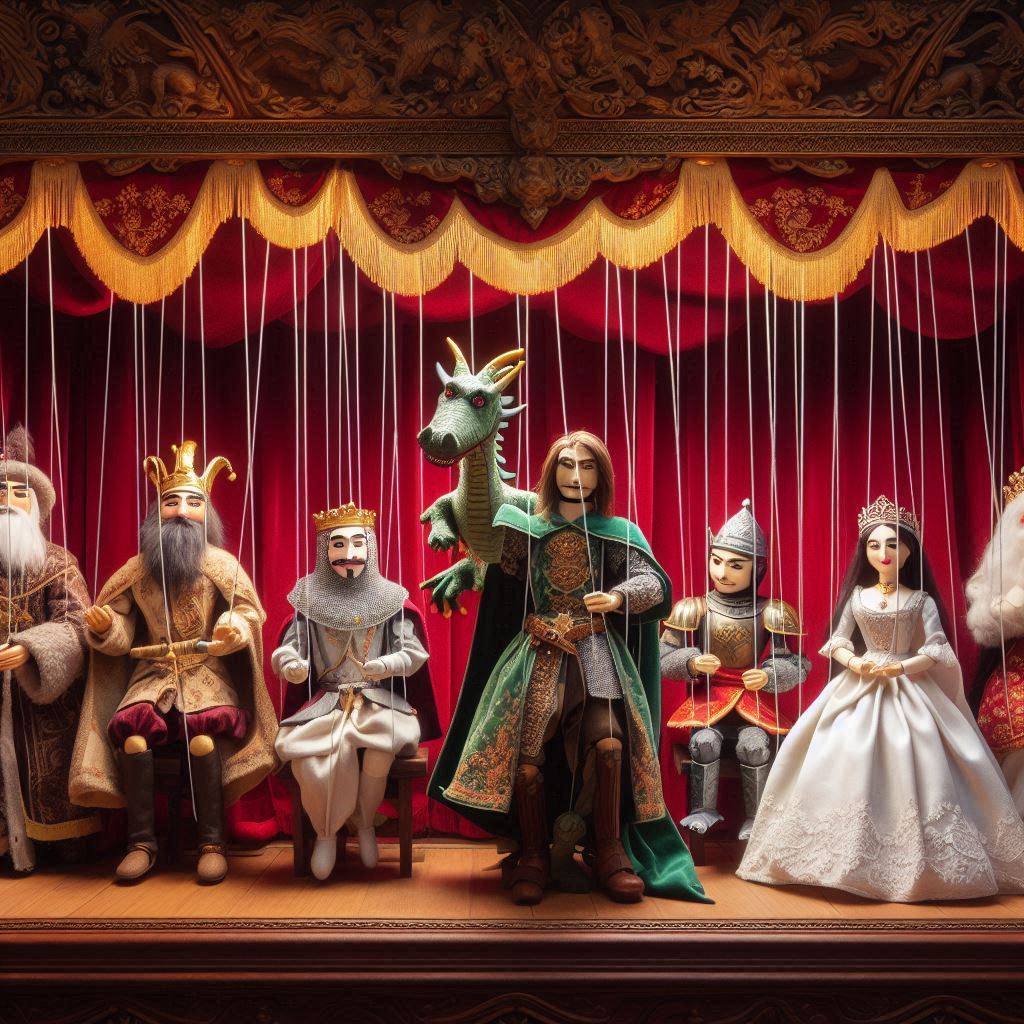Pupaphobia
Fear of Puppets
Jump to the Article

Imagine, if you will, a world where strings and stuffing hold more terror than the darkest night. A world where wooden limbs and painted smiles induce shivers down your spine. Welcome to the peculiar realm of pupaphobia, the fear of puppets.
Now, you might think, "Puppets? Really?" But for those afflicted with this quirky phobia, these seemingly innocent toys can trigger a cascade of anxiety, fear, and even panic. Whether it's a marionette's eerie dance or a ventriloquist's chillingly still lips, puppets can become a source of dread.
So, the next time you encounter a puppet show, spare a thought for those who might be trembling in their seats. After all, even the most whimsical creations can cast a shadow of fear.
Pupaphobia: A Puppetry of Fear
Pupaphobia, the fear of puppets, is a fascinating psychological phenomenon that invites philosophical exploration. At its core, it highlights the complex interplay between our rational minds and our primal instincts.
Puppets, often seen as innocent and playful, can evoke a range of emotions, from amusement to fear. This disparity underscores the power of symbolism and representation. A puppet, though inanimate, can embody human qualities and emotions, making it both familiar and uncanny. This liminal state, where the object is both human and not-quite-human, can trigger anxiety and discomfort.
From a philosophical perspective, pupaphobia can be seen as a manifestation of our fear of the unknown. Puppets, with their often exaggerated features and unnatural movements, challenge our sense of reality. They can represent the uncanny, the strange, and the unfamiliar, all of which can provoke feelings of unease and dread.
Moreover, puppets often serve as a metaphor for control and manipulation. In puppetry, a puppeteer controls the actions of the puppet, highlighting the power dynamics between individuals. This can evoke feelings of vulnerability and helplessness, particularly for those who struggle with issues of control and autonomy.
Pupaphobia, then, is not merely a fear of inanimate objects. It is a reflection of deeper psychological and philosophical concerns, including our relationship with the uncanny, our fear of the unknown, and our desire for control. By understanding the roots of this phobia, we can gain a deeper appreciation for the complex ways in which our minds process and interpret the world around us.
